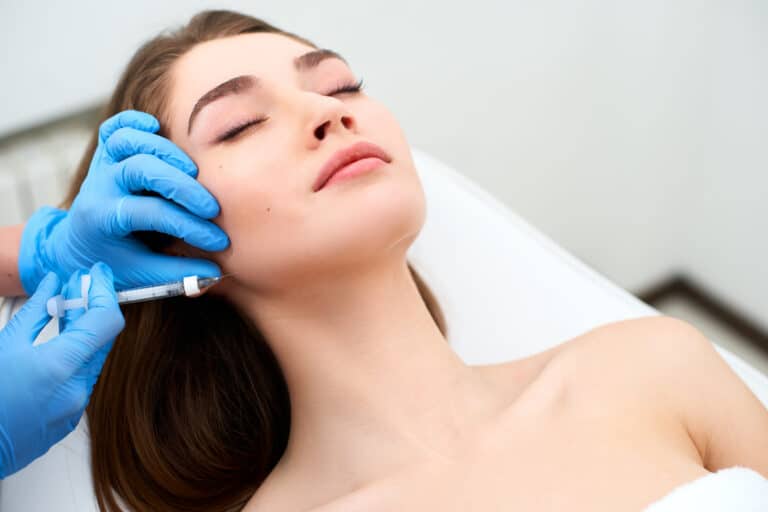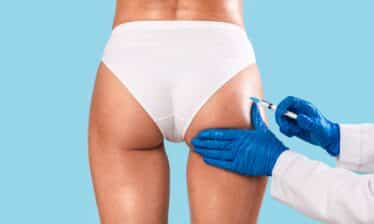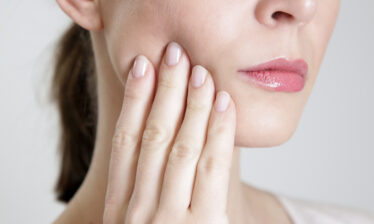You rely on your masseter muscle more than you realize, even when you don’t know what it is. The masseter is a connective muscle between the cheekbone and the jaw that helps you chew. It’s all too easy for your masseter to become tightened and stiff, which can lead to:
- Headaches, earaches, or toothaches
- Vertigo
- Tinnitus
Fortunately, masseter botox can help to relax the masseter, which will not only ease the tension in your face but help you to look younger and more refreshed. Let’s dig into everything you need to know about masseter botox today.
What Is Masseter Botox?
So, what is masseter botox?
Masseter botox, or jaw botox as it is sometimes called, is a muscle relaxer injected into your masseter. This will initially make the masseter unable to move but will inevitably relax the muscle, helping to relieve the symptoms of a too-tight masseter.
How Does Masseter Botox Work?
A masseter botox treatment begins with a consultation with your doctor. This will determine whether masseter botox is the right choice for you. It will also help the doctor determine the best place for the injection.
During the appointment, a medical professional will clean the skin around the site of the injection and numb the area with a topical anesthetic. They will inject the botox into the masseter on one side and, depending on your needs, may also inject the other side. The procedure takes about 15 minutes, and results appear within the week.
Benefits of Masseter Botox
There are a number of masseter botox benefits, both cosmetic and health benefits. Sometimes, masseter botox is something that you opt for in order to contour your jawline. Sometimes, a medical professional may recommend masseter botox to ease tension along your jaw. Some of the benefits of masseter botox include:
Facial Shaping
If you find your jaw to be too square or too prominent, masseter botox could be a solution. With a muscle relaxer injected into your masseter, your jawline will appear slimmer, thus shaping your face to fit the way you want to look.
Teeth grinding or clenching your jaw can also enlarge your masseter. If you want to give your entire face a slimmer look overall, masseter botox is a good way to do so.
Teeth Grinding Relief
Teeth grinding can be a pain, but if left untreated, it can also cause legitimate medical problems. Also known as bruxism, chronic teeth grinding can cause symptoms beyond toothaches and headaches, such as:1
- Neck and shoulder pain
- Temporomandibular joint disorder (TMD)
- Broken teeth or loss of teeth
- Sleep issues
- Jaw locking
- Poor range of motion
There are ways to treat teeth grinding that don’t include masseter botox, such as simple lifestyle changes or mouth guards. If, however, the issue with teeth grinding continues to be a problem, masseter botox can relax the muscle and lead to less teeth grinding.
Temporomandibular Joint Disorder Relief
As mentioned, a TMD can be a consequence of long-term teeth grinding.2 Patients with this disorder experience episodes of chronic facial pain, which can reduce the quality of their daily lives. In some cases, a TMD may be a dislocated jaw or disk. It may also be a degenerative joint disease. Studies have shown that masseter botox helps to reduce the frequency and duration of episodes for those who suffer from TMDs, thus offering pain relief and more bearable management of their disorder.3
Who Is Masseter Botox For?
Anyone over the age of 18 is safe to take a masseter botox treatment. Patients with a large square jaw are usually a good fit for masseter botox. Whether they need cosmetic changes or wish to find relief for facial pain they may experience, masseter botox is often recommended. If you experience severe bruxism or a TMD, you may also consider masseter botox to find relief from your symptoms.
What to Expect From Your Masseter Botox Results
There is no preparation required before your masseter botox procedure. Simply schedule an appointment, come into the office, and prepare to be there for roughly 15 minutes. You will not notice results right away. You can carry about your day, but you should avoid rubbing the treated area or exercising after the treatment. You should also avoid nicotine or alcohol in the aftermath.
How long does masseter botox take to work? You will notice a different feeling soon after your procedure, although your facial shape may not look different yet. Your facial shape may begin to slim as soon as 3 days from the procedure, but if results take a little over a week, don’t panic. The average is about 7-10 days. If you do not notice a change after 10 days, you can contact your medical professional to discuss what to expect.
You will not receive the maximum benefit of masseter botox until about 3 months after your first treatment. Masseter botox is not permanent. Results can last for as long as 9 months but typically last about 6 months. After that point, the muscle relaxers have worn off, and your masseter may become tightly clenched again. Many patients schedule treatments every six months in order to maintain a slim facial shape and reduce symptoms of bruxism and TMDs.
How Much Does Masseter Botox Cost?
The cost of masseter botox depends on where you live and whether you want to have one side or both sides of your face done. Most patients receive injections on both sides of the face, which costs on average somewhere between $400 and $600. As with most medical procedures, this is an investment. If you get botox injections twice a year, that could easily be upwards of $1,000. It’s always wise to speak with a medical professional about whether or not masseter botox is the right choice for you before you commit to it financially.
Want to learn more about masseter botox and other skin filler treatments? Check out My Filler Treatment’s articles to stay informed.
SOURCES:
- NHS: “Teeth Grinding.”
- Johns Hopkins Medicine: “Temporomandibular Disorder.”
- Toxins: “Temporomandibular Myofacial Pain Treated with Botulinum Toxin Injection.”






